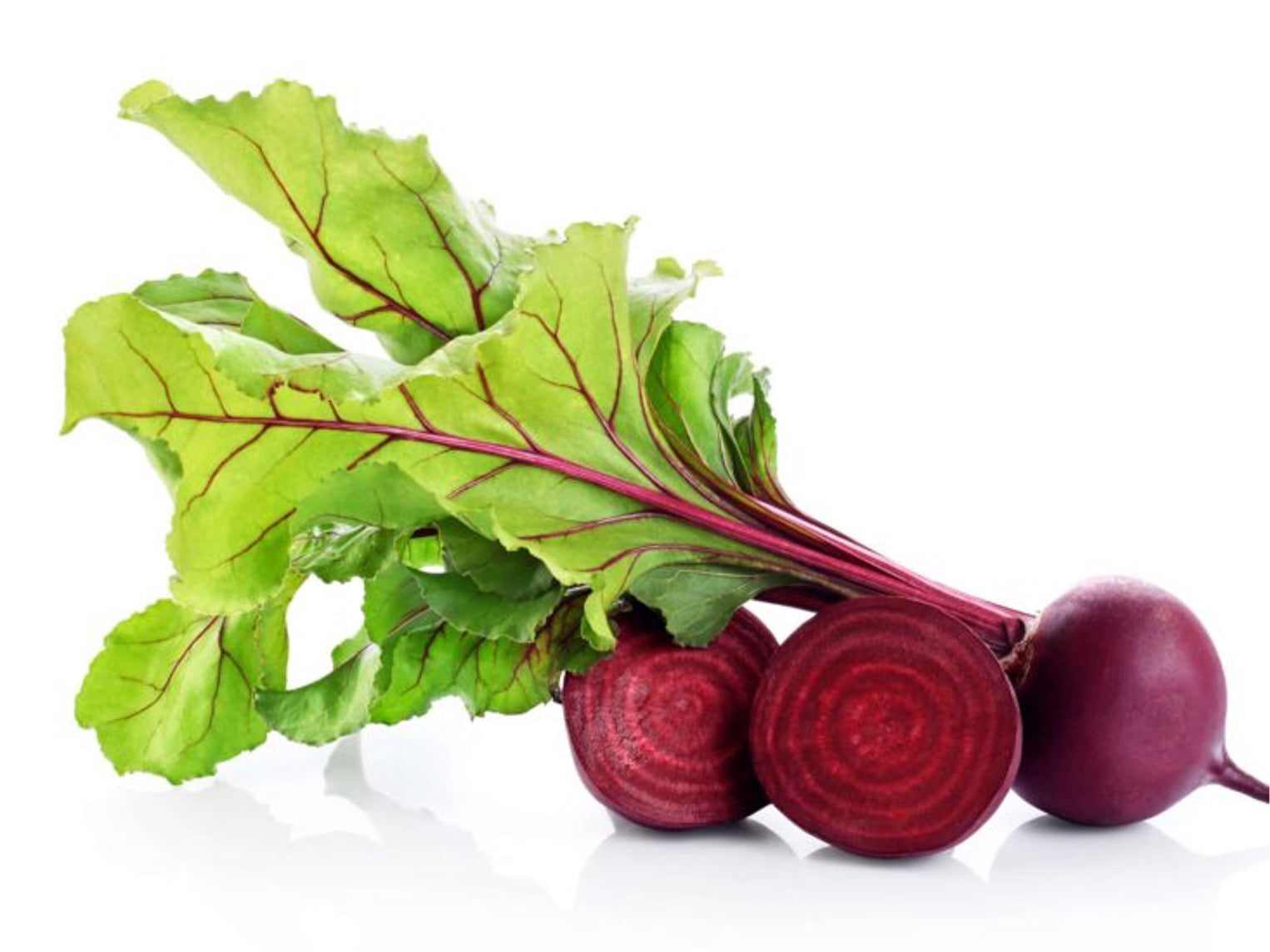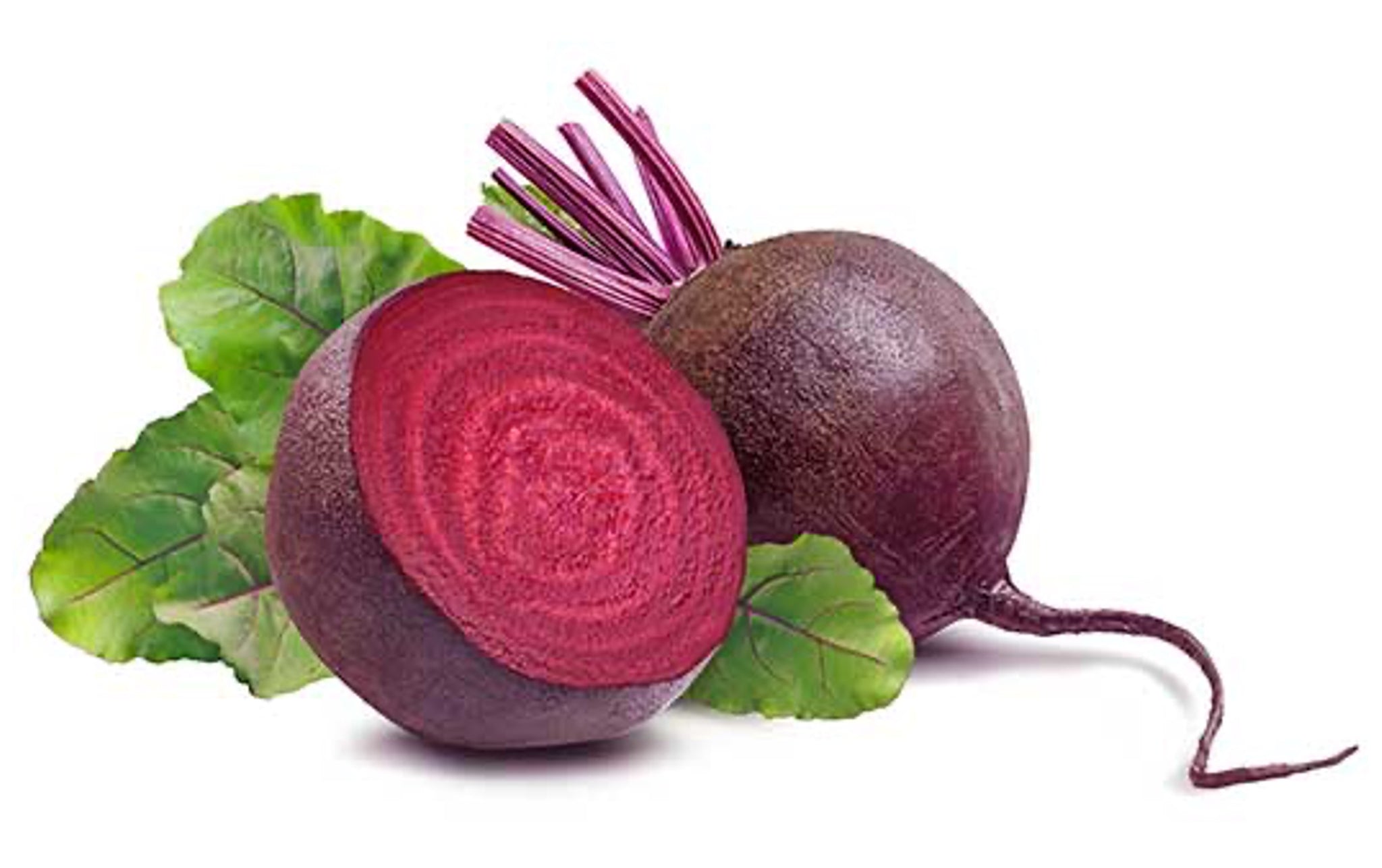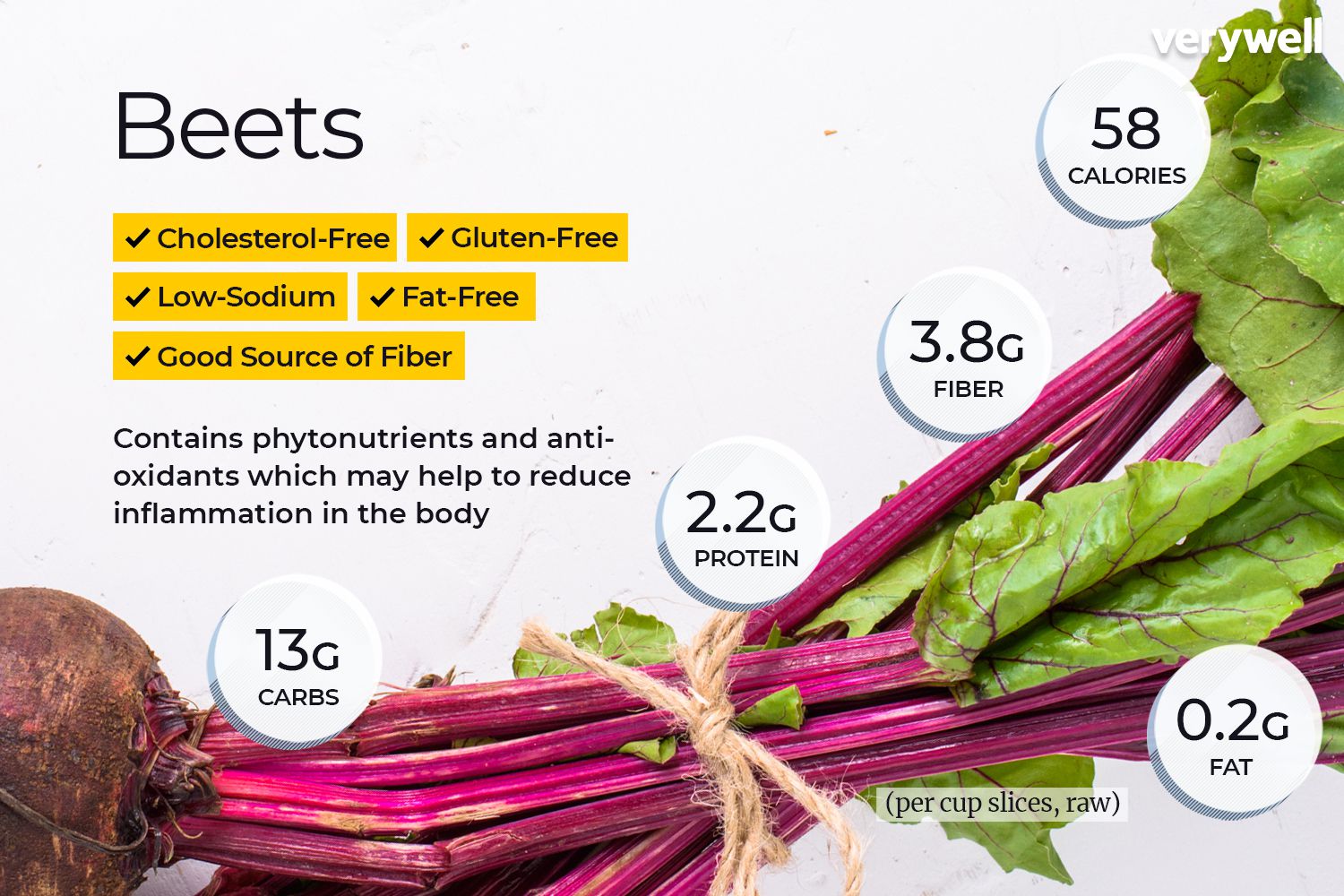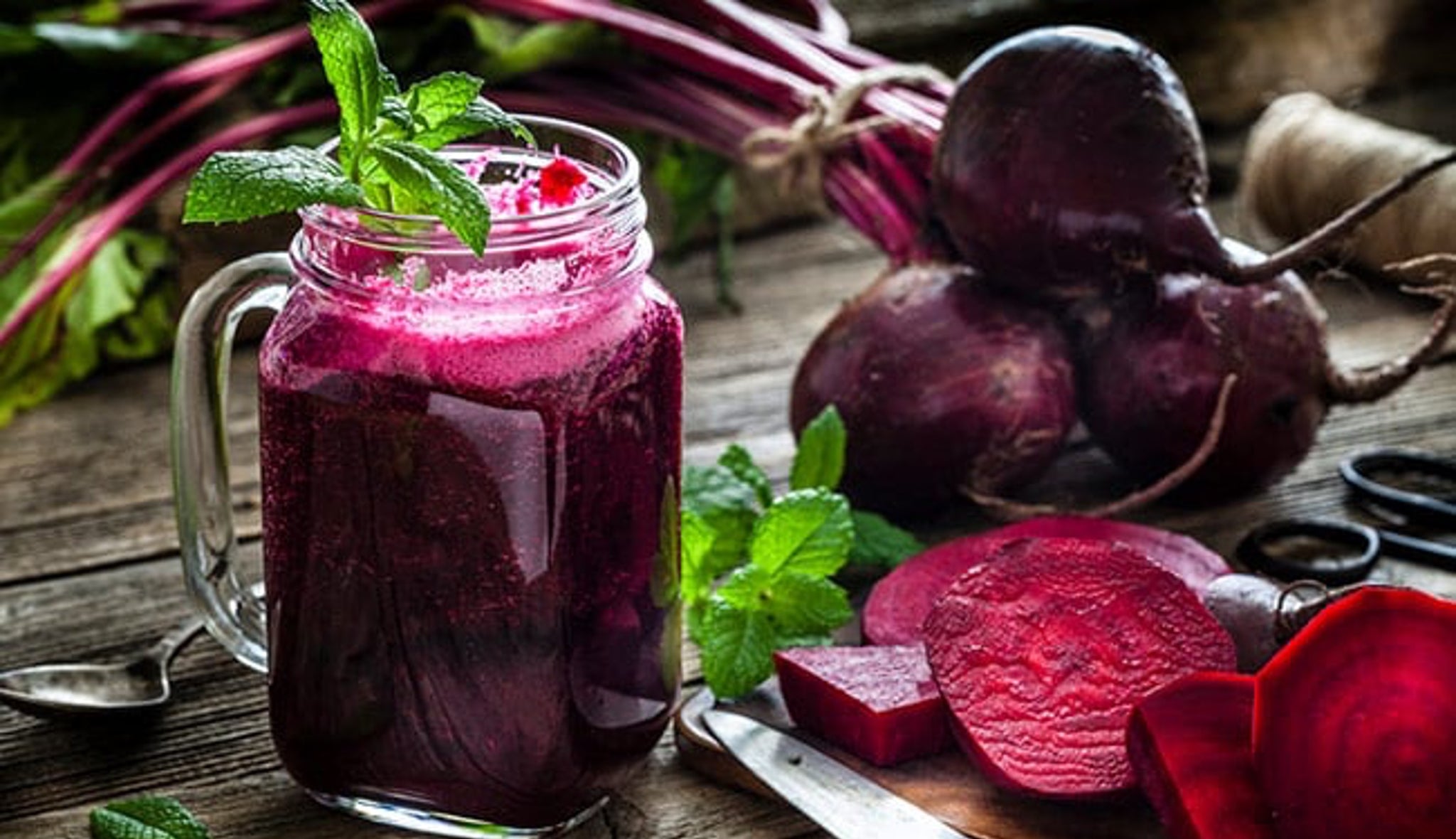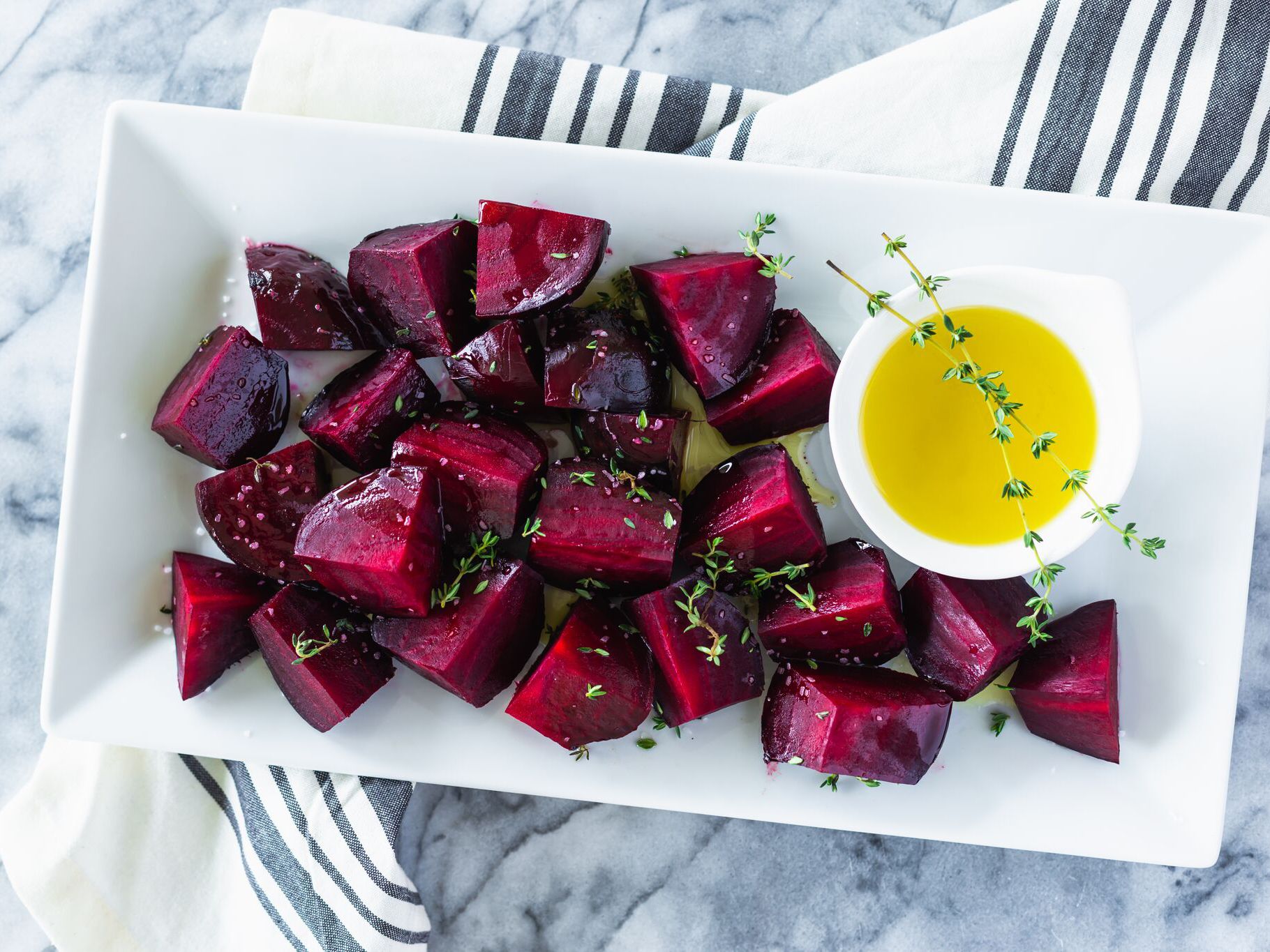Beet Root
- Product Weight: 454 g
- Category: Fresh Fruits & Vegetables, Grocery & Gourmet Foods, Vegetables

Beetroots, commonly known as beets, are a popular root vegetable used in many cuisines around the world.
Beets are packed with essential vitamins, minerals and plant compounds, some of which have medicinal properties.
What’s more, they are delicious and easy to add to your diet.
Beets boast an impressive nutritional profile.
They are low in calories, yet high in valuable vitamins and minerals. In fact, they contain a bit of almost all the vitamins and minerals that you need (1).
Here is an overview of the nutrients found in a 3.5-ounce (100-gram) serving of cooked beetroot (1):
- Calories: 44
- Protein: 1.7 grams
- Fat: 0.2 grams
- Fiber: 2 grams
- Vitamin C: 6% of the RDI
- Folate: 20% of the RDI
- Vitamin B6: 3% of the RDI
- Magnesium: 6% of the RDI
- Potassium: 9% of the RDI
- Phosphorous: 4% of the RDI
- Manganese: 16% of the RDI
- Iron: 4% of the RDI
Beets also contain inorganic nitrates and pigments, both of which are plant compounds that have a number of health benefits.
SUMMARY:Beets are loaded with vitamins and minerals and low in calories and fat. They also contain inorganic nitrates and pigments, both of which have a number of health benefits.
Heart disease, including heart attacks, heart failure and stroke, is one of the leading causes of death worldwide.
And high blood pressure is one of the leading risk factors for the development of these conditions.
Studies have shown that beets can significantly lower blood pressure by up to 4–10 mmHg over a period of only a few hours (2Trusted Source, 3Trusted Source, 4Trusted Source).
The effect appears to be greater for systolic blood pressure, or pressure when your heart contracts, rather than diastolic blood pressure, or pressure when your heart is relaxed. The effect may also be stronger for raw beets than cooked beets (5Trusted Source, 6Trusted Source, 7Trusted Source, 8Trusted Source).
These blood pressure-lowering effects are likely due to the high concentration of nitrates in beets. In your body, dietary nitrates are converted into nitric oxide, a molecule that dilates blood vessels, causing blood pressure to drop (9Trusted Source).
Blood nitrate levels remain elevated for about six hours after eating dietary nitrate. Therefore, beets only have a temporary effect on blood pressure, and regular consumption is required to experience long-term reductions in blood pressure (10Trusted Source).
SUMMARY:Beets contain a high concentration of nitrates, which have a blood pressure-lowering effect. This may lead to a reduced risk of heart attacks, heart failure and stroke.
Several studies suggest that dietary nitrates may enhance athletic performance.
For this reason, beets are often used by athletes.
Nitrates appear to affect physical performance by improving the efficiency of mitochondria, which are responsible for producing energy in your cells (11Trusted Source
Beetroots, commonly known as beets, are a popular root vegetable used in many cuisines around the world.
Beets are packed with essential vitamins, minerals and plant compounds, some of which have medicinal properties.
What’s more, they are delicious and easy to add to your diet.
1. Many Nutrients in Few Calories
Beets boast an impressive nutritional profile.
They are low in calories, yet high in valuable vitamins and minerals. In fact, they contain a bit of almost all the vitamins and minerals that you need (1).
Here is an overview of the nutrients found in a 3.5-ounce (100-gram) serving of cooked beetroot (1):
- Calories: 44
- Protein: 1.7 grams
- Fat: 0.2 grams
- Fiber: 2 grams
- Vitamin C: 6% of the RDI
- Folate: 20% of the RDI
- Vitamin B6: 3% of the RDI
- Magnesium: 6% of the RDI
- Potassium: 9% of the RDI
- Phosphorous: 4% of the RDI
- Manganese: 16% of the RDI
- Iron: 4% of the RDI
Beets also contain inorganic nitrates and pigments, both of which are plant compounds that have a number of health benefits.
SUMMARY:Beets are loaded with vitamins and minerals and low in calories and fat. They also contain inorganic nitrates and pigments, both of which have a number of health benefits.
Heart disease, including heart attacks, heart failure and stroke, is one of the leading causes of death worldwide.
And high blood pressure is one of the leading risk factors for the development of these conditions.
Studies have shown that beets can significantly lower blood pressure by up to 4–10 mmHg over a period of only a few hours (2Trusted Source, 3Trusted Source, 4Trusted Source).
The effect appears to be greater for systolic blood pressure, or pressure when your heart contracts, rather than diastolic blood pressure, or pressure when your heart is relaxed. The effect may also be stronger for raw beets than cooked beets (5Trusted Source, 6Trusted Source, 7Trusted Source, 8Trusted Source).
These blood pressure-lowering effects are likely due to the high concentration of nitrates in beets. In your body, dietary nitrates are converted into nitric oxide, a molecule that dilates blood vessels, causing blood pressure to drop (9Trusted Source).
Blood nitrate levels remain elevated for about six hours after eating dietary nitrate. Therefore, beets only have a temporary effect on blood pressure, and regular consumption is required to experience long-term reductions in blood pressure (10Trusted Source).
SUMMARY:Beets contain a high concentration of nitrates, which have a blood pressure-lowering effect. This may lead to a reduced risk of heart attacks, heart failure and stroke.
Several studies suggest that dietary nitrates may enhance athletic performance.
For this reason, beets are often used by athletes.
Nitrates appear to affect physical performance by improving the efficiency of mitochondria, which are responsible for producing energy in your cells (11Trusted Source



